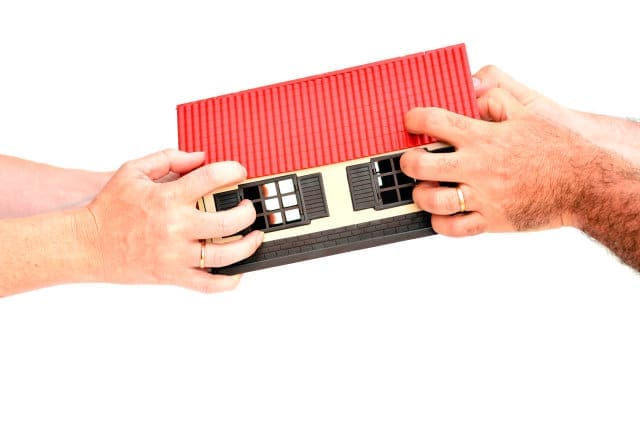The biggest asset most people own is their home. When your marriage is ending your home can then become the most problematic issue with the separation as well as becoming a huge financial burden.Understanding ownership and division of property:
There are different rules and laws when it comes to the family home in regards to married couples and common law couples.
Common Law Couples – Both parties don’t necessary have rights to the ownership of the home if it’s not in both parties’ names. This can be resolved in court if the non-titled party can prove habitation in the home and finically contributing to the home in question. Even so, this doesn’t guarantee they’ll receive any rights to the home.
Married Couples – The common term for the home in which married couples live in is a “Matrimonial Home”. Each partner has an equal share in the equity of the home. Not one spouse can sell or re-finance their home without the other’s permission as they’re both are on title to the property.
Property Division:
Common Law Couples – When you purchase or own something in a common law relationship it generally means it’s yours and yours only. If both parties buy an item such as a home, it will usually be divided based on the amount invested in the property at the time of purchase as well as money contributed throughout habitation. It’s strongly recommended that all receipts and proof of ownership are kept in case of a separation in the relationship later on.
Married Couples – When a property is purchased during marriage, it’s automatically owned equally by both parties. If a property is owned before marriage by only one party and it’s used at the primary residence, it’s now equally owned by both parties by law and becomes the matrimonial home. When a family law lawyer is obtained, they’ll prepare an “equalization payment” to determine the value of the home as well as other property and split this as equally as possible between both parties.
Before moving in with your common law or married spouse, it’s always a good idea to prepare a ‘Cohabitation Agreement’ for common law partners and a ‘Marriage Contract’ for married couples. This must be done by a family law lawyer. These documents will usually be upheld in court unless both parties agree to change it. The only time the court will disregard the document is if one or both parties lied about their finances at the time of drafting the document, one or both parties didn’t understand the document or they were under pressure to sign the agreement.
Where to Start:
When your relationship ends and you need to sell your home, the first step is to find lawyers. Both you and your partner will need to find your own family law lawyer to act on behalf of you individually. This is the case if you’re married or you’re a common law couple in disagreement. You’ll then need to find a real estate lawyer who will represent both of you in the sale of your home. The real estate lawyer will also be in communication with both family law lawyers to make sure the right amount of proceeds and payments are made to each individual at the time of closing. Sometimes both parties will still be dealing with family law court at the time of closing and the real estate lawyer will then hold the money in trust until it’s settled.
It’s also important to remember that both parties should hold off on buying any additional property until the sale of their joint home has closed and they’ve received their funds if they require these funds to close on their purchase. This is due to the fact that anything holding up the separation/divorce proceedings in court will stop you from receiving the closing money and therefore you may not be able pay for your new home.
Are you interested in learning more about property division in divorce and separation? Give us a call 416-291-7372.
To receive a list of the TOP TEN properties in your area email us at Hello@ChristineCowern.com.




